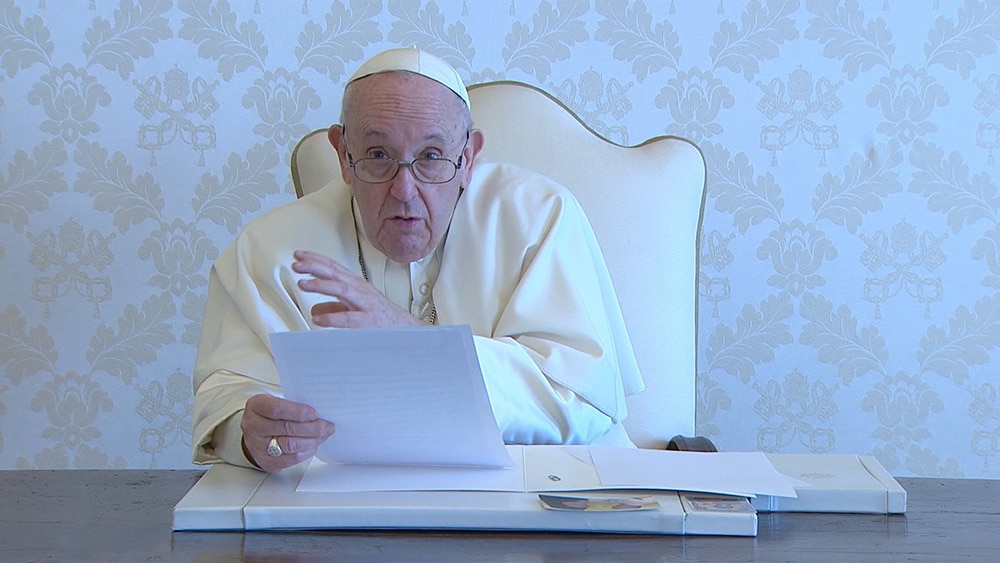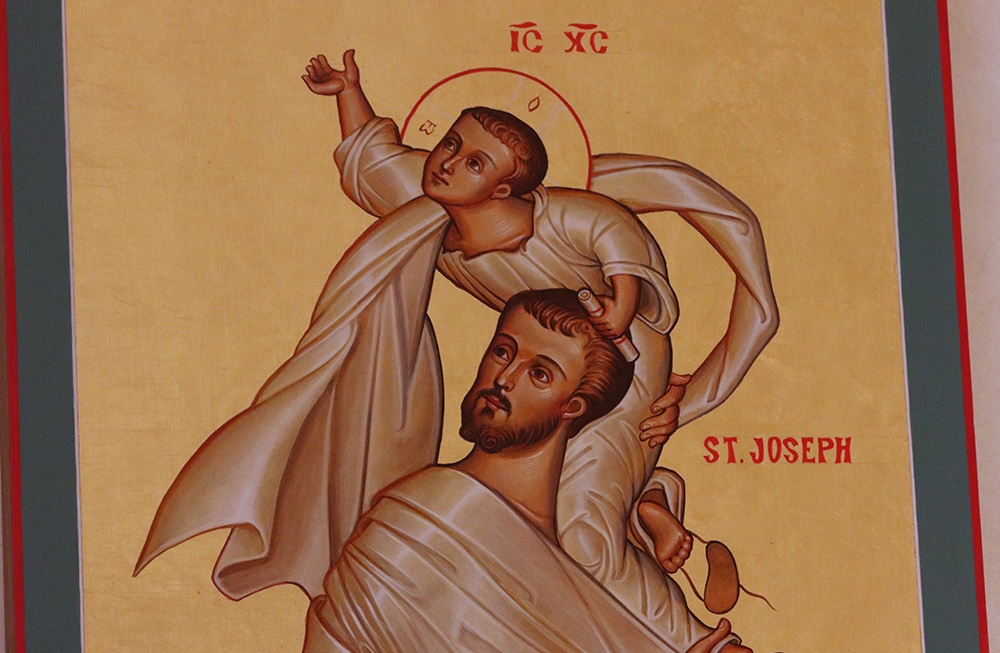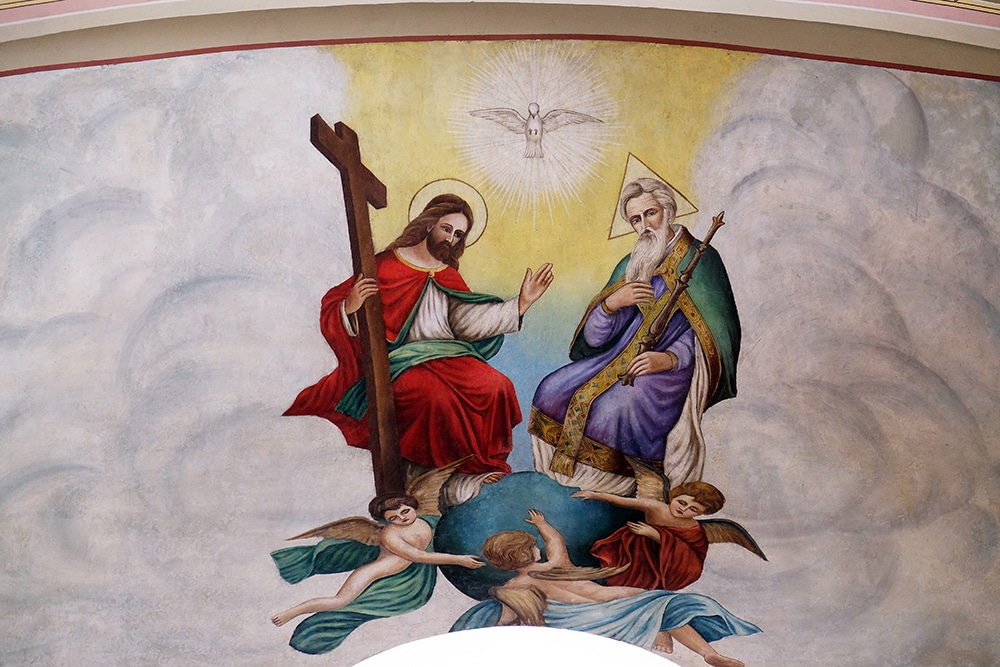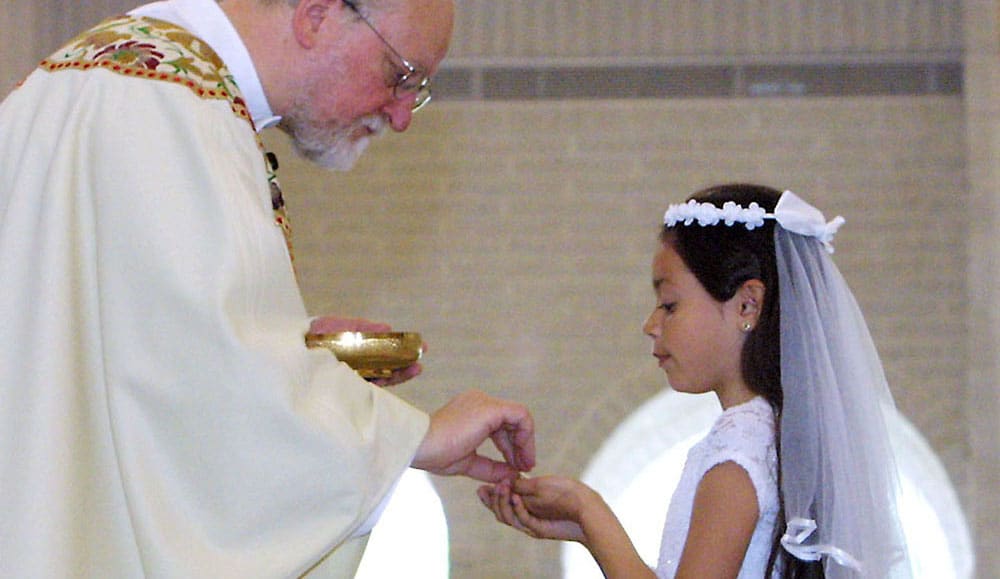Dear Friend,
My first letter to you on how to pray had a bitter taste. That came from the instruction to become a beggar. Neither you nor I like to beg. It is humiliating, we become vulnerable, and it wounds our pride. We lose control when we beg because we put ourselves at someone else’s mercy. We would rather make a bargain, earn our share or scheme our way to our desired end. We would like to approach God more on the level as if God were not so very different from us and our prayer could be more of a “relationship” like other relationships: with give and take, and a sense of mutuality. The instruction to become a beggar disrupts all that. That first letter carried the bitter taste of our belittlement in prayer. This letter carries the sweetness of our belovedness in prayer.
Our belovedness is not found in anything we say about ourselves, but rather it comes through what we say to God. What is this thing we say to God? It comes right at the start of the most basic and simplest of all Christian prayers. We address God as “Our Father.”
You have heard those words and likely have said them countless times throughout your life, as have I. Like me, you can probably rattle off the several dozen words that follow those first two words without a moment’s thought, just like you were reciting the alphabet. It seems there is nothing new there: It is just the formulaic stuff of rote memorization. “Our Father” has become a filler — just a passing phrase.
I am not telling you anything you don’t already know when I say that Jesus gives his disciples the prayer that begins with “Our Father.” And maybe you also know that, at least in the Gospel of Luke, Jesus teaches this prayer after his disciples saw him praying and one of his disciples said to him, “Lord, teach us to pray” (Lk 11:1). But maybe you haven’t much considered just how significant and revolutionary it is that Jesus forms his disciples to say “Our Father.”
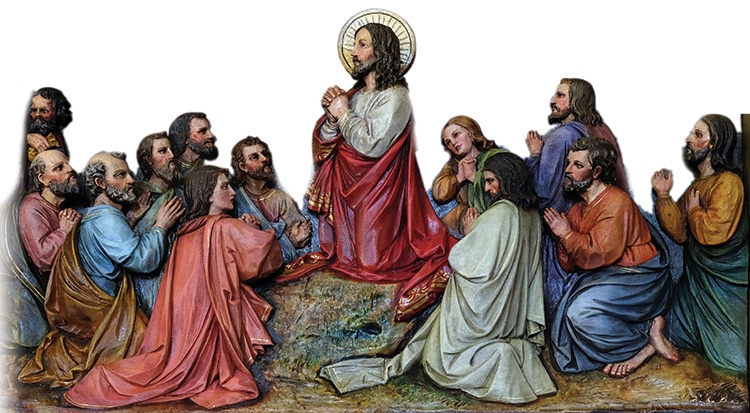
What matters here is who Jesus is. If he is just another enlightened religious teacher — even a magnificent figure — then teaching his disciples to call God “Father” is equivalent to him telling them to call God “Great One” or “Life-giver” or “Our Friend.” It would add something to our imaginations and gives us a useful way to think about God as we try to pray.
Or, to think of this from another angle: If the Prince of Wales told me to call his mother “our mother,” that would not make me a prince. If it did, I would call the queen “mother” as many times as necessary to upgrade my wardrobe and my accommodations. The truth is that the Prince of Wales is just like me, but for the castles and private air transport. He is just a man, and his mother is just a woman. We could pretend that calling his mother “our mother” would fundamentally change who I am, but really, at most, it would be like when your best friend says “make yourself at home.”
But if Jesus truly is the Son of God, then something remarkable is happening when he forms his disciples to call God “Our Father.” The Son of God is not like us but became like us. He is not just another man, but the Word of God who became flesh. His Father is not “our” Father. God the Father is Jesus’ Father. When Jesus addresses God as “Father,” he is revealing what is eternally true: He is the only Son of the Father. God is our Creator, and we are God’s creatures. So it is not the “Father” part of Jesus’ teaching on prayer that is so shocking. What is shocking is that he says “Our Father.”
We would be right to think that the “Our” in that address means that we address the Father together — in other words, I cannot claim the Father as my own, excluding you. That is utterly significant for how we ought to think of, care for and treat each other. But the “Our” is even more significant than that. When Jesus teaches his disciples to pray, he does not form them to pray alone. Rather, he forms them to pray with him; indeed, he forms them to pray in him. The disciples of Jesus are to pray in Jesus’ place — that is, they are to pray not as they themselves are on their own, but as Jesus himself is. Jesus is the Son who teaches his disciples to call his Father, our Father. He is praying with us, and we are praying with him. Disciples never pray alone.
You may suspect that I am drifting far away from the practical stuff here. I assure you, nothing is more practical than this. When his disciples asked him to teach them how to pray, Jesus did not teach them a technique. He drew them into his relationship with the Father. To accept Jesus’ invitation to prayer means that God is not remote, distant, unreachable. Jesus says to his disciples: “Draw near. I give you my Father.” This changes everything about who we are — it is the most practical thing of all. Jesus makes us the beloved sons and daughters of his Father. That is what Christian prayer is: being drawn into Christ.
In Christ, we become the ones who can call God “Father.” That does not mean we cease being beggars. Christ himself became a beggar. Though he was rich, he became poor (cf. 2 Cor 8:9) so he could beg like we have to beg. Our begging God is not so lowly or belittling as it first seemed, because the Son of God begs with us, as one of us.
On this earth, Jesus begged his Father in heaven for everything. He did not do anything on his own. In the desert, the devil tempted him to do it another way, but Christ refused: He only lived through what the Father gave him and willed (cf. Lk 4:1-13; Mt 4:1-11). As he entered into the day of his death, he prayed, “Father, if you are willing, take this cup away from me; still, not my will but yours be done” (Lk 22:42). He begged, but most of all he trusted. His was always the begging of the beloved Son: He depended on his Father for everything, and he knew that his Father always heard him and loved him.
Jesus begged God, but even more, he trusted God as his Father. This is the heart of Jesus’ gift to his disciples when he teaches them to pray “Our Father.” In everything and for everything, this is who they can trust, and they can trust God as Father because Jesus has given his own trust to them. “Trust my Father,” he says, “whom I give you as your Father.”
So what does this mean for you, today? It means that when you pray, you are not praying to a capricious deity, or an impersonal force, or some far-off and vague being. If you and I accept Jesus’ invitation to prayer, it means that we get to call his Father, our Father. That is who listens to our prayers: Jesus’ Father, who loves us. We are his beloved.
What can you do to practice being God’s beloved? Something very simple. Practice praying only these two words: “Our Father.” I mean it: make that your entire prayer sometimes. Just pray “Our Father,” and then rest in silence for a minute, five minutes, 20 minutes.
Don’t overthink it, but just remember that when you say “Our” you are calling God “Father” with me and with everyone else who calls upon God. But the more significant thing is also taking place: you are calling God “Father” with Jesus. This is his Father, whom he gives us as our own.
When we pray “Our Father,” we practice accepting Christ’s gift and we join him in prayer. That means, also, that he joins us in begging for what we need. It is an incredible deal: he gains nothing from us yet gives us everything that he has, while we gain everything and give him all our needs. In this prayer, we receive the great gift Christ has to give us: his trust in his Father.
So if I close by telling you that “you are loved,” do not take it as wispy and insubstantial sentiment. Take it as the expression of a great and almost unfathomable mystery. The Son of God shares his divine sonship with you. He makes you God’s beloved. There is nothing bitter about that.
Sincerely,

Leonard J. DeLorenzo, Ph.D., works in the McGrath Institute for Church Life and teaches theology at the University of Notre Dame. He is most recent book is Into the Heart of the Father: Learning from and Giving Yourself through Christ in Prayer (Word Among Us, $14.95)


